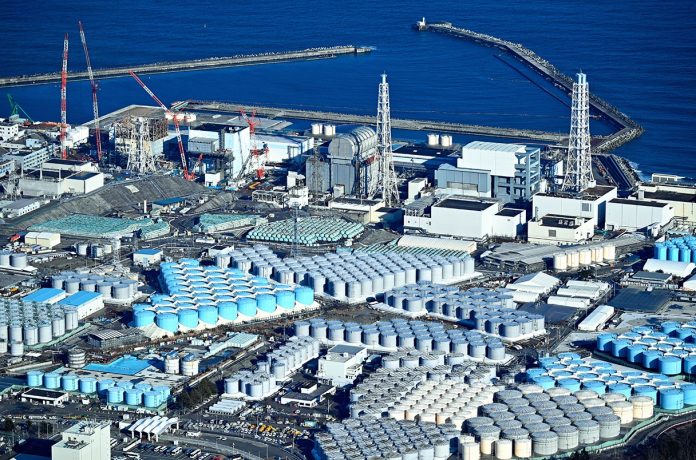While stressing that the so-called treated water from the destroyed Fukushima nuclear plant still contains radionuclides that are not able to be removed, a renowned Japanese environment economist said that we must persistently demand that the Japanese government and the Tokyo Electric Power Co (TEPCO) stop dumping the nuclear-contaminated wastewater into the Pacific Ocean.
Kenichi Oshima, professor at Ryukoku University, told the Global Times that the Japanese government and TEPCO should not release the nuclear-contaminated wastewater.
The Japanese government and TEPCO plan to use ALPS – Advanced Liquid Processing System – to treat the nuclear-contaminated wastewater from the Fukushima nuclear accident and then release the treated water into the ocean. The treated water contains radionuclides including ruthenium, strontium-90 and iodine-129, in addition to tritium, Oshima noted.
Before the release, TEPCO developed a “Radiation and Environmental Impact Assessment Report on Ocean Discharge of ALPS Processed Water “to assess the impact of ocean discharge.
“Nevertheless, we believe it is impossible to accurately predict the ecological effects of ocean discharges over the next several decades,” the Japanese environment economist said.
Commenting on the so-called treated Fukushima water, Mao Ning, spokesperson for the Chinese Foreign Ministry, said on Monday that Japan has been claiming that ALPS-treated nuclear-contaminated water is safe and harmless and that it opposes calling the water “nuclear-contaminated”. The fact, however, is that the water contains over 60 radionuclides, many of which cannot be treated effectively with existing technologies.
Some long-lived radionuclides may spread with ocean currents and form a bioconcentration effect, which will multiply the total amount of radionuclides in the environment, causing unpredictable hazards to the marine environment and human health, Mao pointed out, noting that the discharge will last as long as 30 years or even longer.
Mao’s remarks are made in response to Japanese Minister of Economy, Trade and Industry Yasutoshi Nishimura, who claimed on Friday that the use of “nuclear-contaminated water” is a “misunderstanding of facts” after the heads of state of China and Russia expressed serious concern about Japan’s plan to dump the nuclear-contaminated water in a joint statement released on 21 March.
The maturity and effectiveness of the ALPS technology has not been evaluated or certified by a third party, and the treatment of such large quantities and complex components of nuclear-contaminated wastewater is unprecedented, and its long-term effectiveness is in doubt, Mao said.
Oshima noted that in 2015, the Japanese government and TEPCO pledged in writing that they would never discharge the nuclear-contaminated water into the ocean without the understanding of fishermen and the public. The Japanese government and TEPCO have been explaining the situation to fishermen and local residents but have not obtained their consent.
However, the Japanese government and TEPCO are not listening to the voices of the people, including those involved in the fishing industry, Oshima revealed.
“We must persistently demand that the [Japanese] government and TEPCO stop discharging ALPS-treated water,” he stressed.
The Japanese professor raised two alternatives in dealing with the radioactive wastewater.
The first is to store the water in large tanks. The half-life of tritium is 12.3 years, so after 123 years of storage, the radioactivity will have decayed to 1/1,000 of its original level. Japan has experience in oil stockpiling, so this is feasible, said Oshima.
The second is mortar solidification. Mortar solidification can prevent leakage. Mortar solidification has been used in the U.S, Oshima noted.
What Japan needs to do now is to take seriously the legitimate concerns of the international community, faithfully perform its international obligations, handle the nuclear-contaminated water in the safest and most prudent way, including fully studying alternatives to ocean discharge, Mao urged.
Also, rather than whitewash its ocean discharge decision, Japan needs to fully subject itself to international oversight, and avoid, to the maximum extent possible, imposing unpredictable risks on the international community, Mao said.
SOURCE: THE GLOBAL TIMES/PACNEWS














